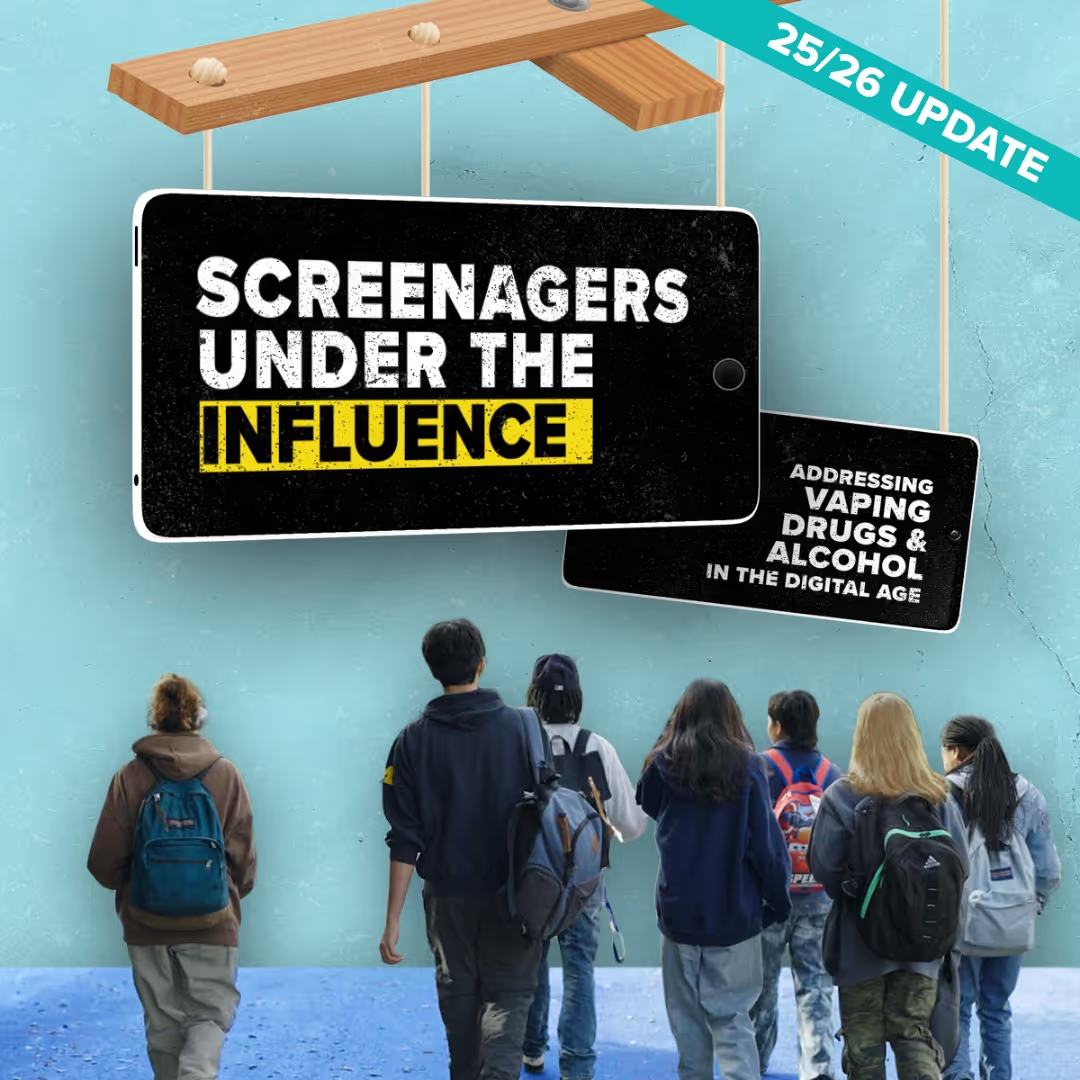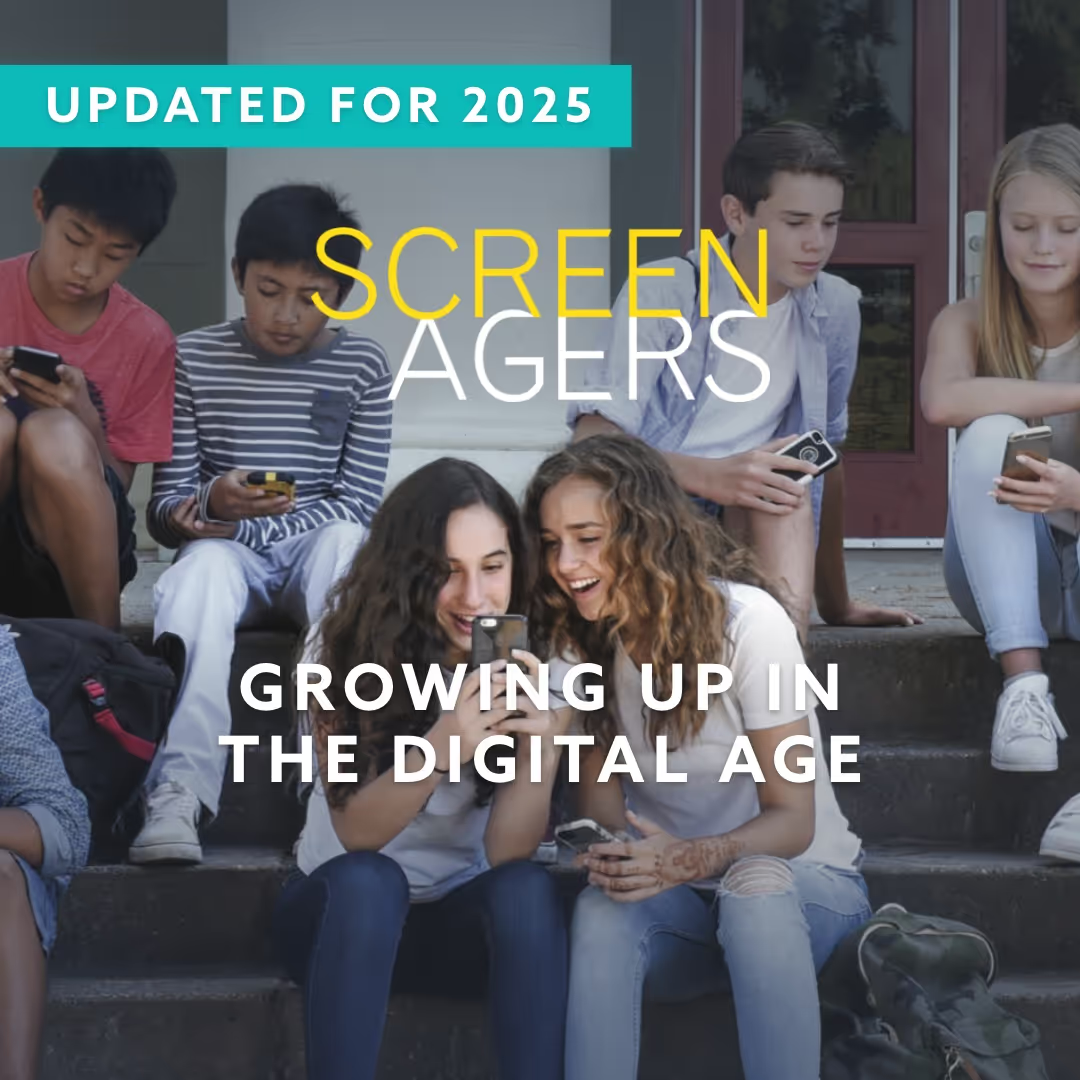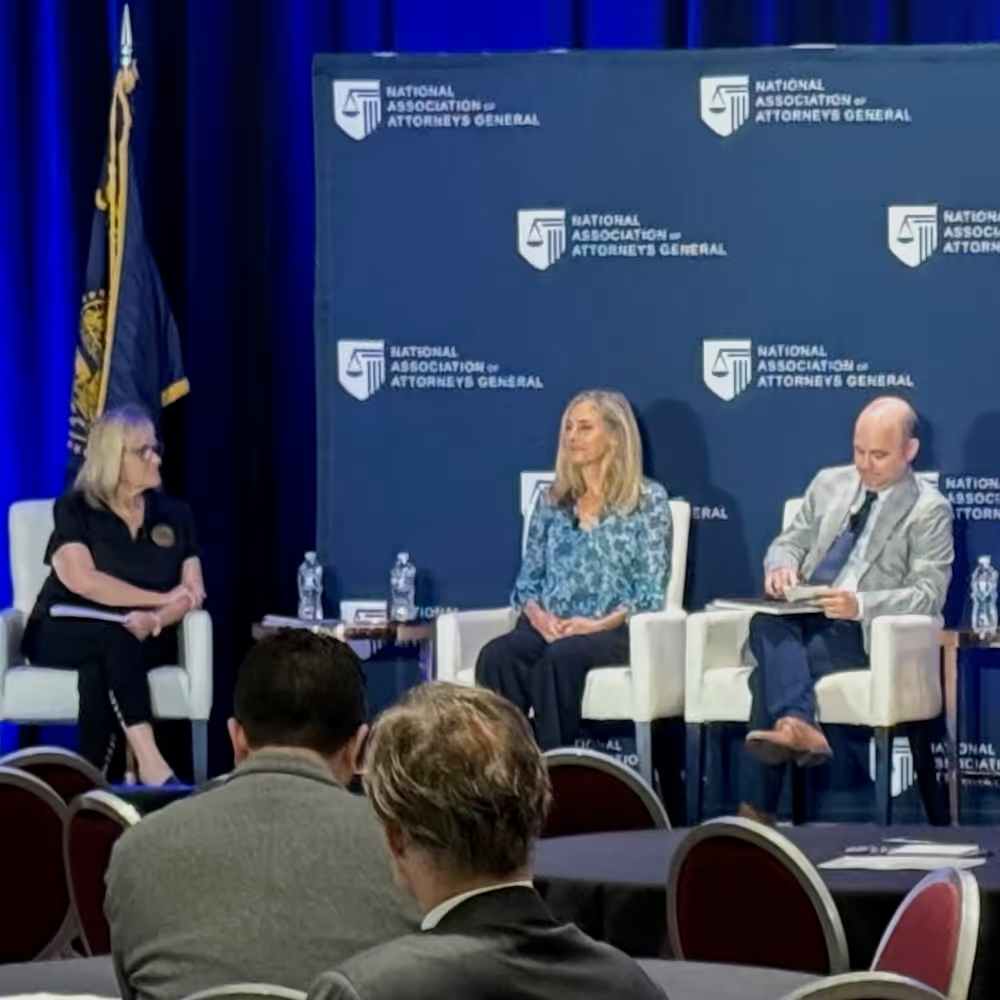


I can barely contain how much joy I feel that our new film, Screenagers Under The Influence: Addressing Vaping, Drugs, and Alcohol in the Digital Age, is launching soon and will be a great resource for young people and adults who want to support them better. Screenings are already scheduled to start in just two and a half weeks.
As a physician, I have worked with youth at the intersection of substance use, risk-taking, mental health, and screen time for many years. Yet, this does not mean I have not felt very unsure about how to parent my kids around these issues. I've had many questions about how to have conversations with my kids about vaping, weed, alcohol, and other topics. I've also had questions like, how much to share about my own past experiences? How to be present in my kids' lives but not be overbearing or intrusive.
I have also had questions about the latest science around the impact of substances on youth development — from occasional use to more frequent use. All these topics and many more are addressed in this film. I learned so much while making Screenagers Under The Influence.
Learn more about showing our movies in your school or community!
Join Screenagers filmmaker Delaney Ruston MD for our latest Podcast

Learn more about our Screen-Free Sleep campaign at the website!
Our movie made for parents and educators of younger kids
Learn more about showing our movies in your school or community!
For years, my film partner Lisa and I have been wondering why there wasn't a film that provided helpful strategies for helping teens navigate their lives when it comes to the intersection of substances and our tech revolution. So we decided to create one ourselves. It's been a long journey, but we're completely thrilled with the final product. We are also incredibly appreciative to all the people in the film, people from such diverse backgrounds, and so much to offer all of us.
Our film features five inspiring stories that are raw, relatable, and full of hope. We hear from families, youth, experts, and scientists, and the richness of their experiences will spark productive conversations wherever the film is shown. We've already had rough-cut screenings with teens and adults, and the conversations that start right when the lights go up were engaging and productive.
Learn more about showing our movies in your school or community!
Join Screenagers filmmaker Delaney Ruston MD for our latest Podcast

Learn more about our Screen-Free Sleep campaign at the website!
Our movie made for parents and educators of younger kids
Join Screenagers filmmaker Delaney Ruston MD for our latest Podcast
One of the stories in the film is about Ellie, who used social media to help her quit vaping. We also meet Elijah, now 21, and his mom, Rosalind Wiseman (Author of Queen Bees and Wannabes and seven other books about teens), who share their experiences with risk-taking and media influence. Wiseman shares how, even as a known parenting expert, she struggled every step of the way. And we witness one specific way that helped Elijah make positive changes. We hear from Joshua and his family about his struggle not with a reinforcing substance but with the reinforcing, dopamine-rich activity — video gaming. And Jo and her family share how depression led her to frequent cannabis use and how things finally changed for her.
As we’re about to celebrate 10 years of Screenagers, we want to hear what’s been most helpful and what you’d like to see next.
Please click here to share your thoughts with us in our community survey. It only takes 5–10 minutes, and everyone who completes it will be entered to win one of five $50 Amazon vouchers.
I can barely contain how much joy I feel that our new film, Screenagers Under The Influence: Addressing Vaping, Drugs, and Alcohol in the Digital Age, is launching soon and will be a great resource for young people and adults who want to support them better. Screenings are already scheduled to start in just two and a half weeks.
As a physician, I have worked with youth at the intersection of substance use, risk-taking, mental health, and screen time for many years. Yet, this does not mean I have not felt very unsure about how to parent my kids around these issues. I've had many questions about how to have conversations with my kids about vaping, weed, alcohol, and other topics. I've also had questions like, how much to share about my own past experiences? How to be present in my kids' lives but not be overbearing or intrusive.
I have also had questions about the latest science around the impact of substances on youth development — from occasional use to more frequent use. All these topics and many more are addressed in this film. I learned so much while making Screenagers Under The Influence.
For years, my film partner Lisa and I have been wondering why there wasn't a film that provided helpful strategies for helping teens navigate their lives when it comes to the intersection of substances and our tech revolution. So we decided to create one ourselves. It's been a long journey, but we're completely thrilled with the final product. We are also incredibly appreciative to all the people in the film, people from such diverse backgrounds, and so much to offer all of us.
Our film features five inspiring stories that are raw, relatable, and full of hope. We hear from families, youth, experts, and scientists, and the richness of their experiences will spark productive conversations wherever the film is shown. We've already had rough-cut screenings with teens and adults, and the conversations that start right when the lights go up were engaging and productive.
One of the stories in the film is about Ellie, who used social media to help her quit vaping. We also meet Elijah, now 21, and his mom, Rosalind Wiseman (Author of Queen Bees and Wannabes and seven other books about teens), who share their experiences with risk-taking and media influence. Wiseman shares how, even as a known parenting expert, she struggled every step of the way. And we witness one specific way that helped Elijah make positive changes. We hear from Joshua and his family about his struggle not with a reinforcing substance but with the reinforcing, dopamine-rich activity — video gaming. And Jo and her family share how depression led her to frequent cannabis use and how things finally changed for her.
Sign up here to receive the weekly Tech Talk Tuesdays newsletter from Screenagers filmmaker Delaney Ruston MD.
We respect your privacy.
I can barely contain how much joy I feel that our new film, Screenagers Under The Influence: Addressing Vaping, Drugs, and Alcohol in the Digital Age, is launching soon and will be a great resource for young people and adults who want to support them better. Screenings are already scheduled to start in just two and a half weeks.
As a physician, I have worked with youth at the intersection of substance use, risk-taking, mental health, and screen time for many years. Yet, this does not mean I have not felt very unsure about how to parent my kids around these issues. I've had many questions about how to have conversations with my kids about vaping, weed, alcohol, and other topics. I've also had questions like, how much to share about my own past experiences? How to be present in my kids' lives but not be overbearing or intrusive.
I have also had questions about the latest science around the impact of substances on youth development — from occasional use to more frequent use. All these topics and many more are addressed in this film. I learned so much while making Screenagers Under The Influence.

I am super happy to share the news that our film, Screenagers Under the Influence: Addressing Vaping, Drugs, and Alcohol in the Digital Age, has been updated by the Screenagers team and I. In today's blog, I'll talk a little about this update, along with sharing a quick true or false quiz you can use to bring up substances and alcohol with your tweens and teens.
READ MORE >
We are thrilled to announce the newly updated version of our groundbreaking original film, Screenagers: Growing Up in the Digital Age. Award-winning and thought-provoking, the film is now more relevant than ever. The updated film features fresh insights, including from Jonathan Haidt, author of Anxious Generation, and several others.
READ MORE >
We all want good news — contrary to mainstream news, which focuses on all that is going wrong, we humans want and need a healthy dose of daily good news, right? I bet you agree, and thank you for reading this blog, which is focused on good news (including news about love). A week ago, I was on a stage, on a panel, in front of many Attorney General at their yearly national conference, and I said these words: “I am optimistic.”
READ MORE >for more like this, DR. DELANEY RUSTON'S NEW BOOK, PARENTING IN THE SCREEN AGE, IS THE DEFINITIVE GUIDE FOR TODAY’S PARENTS. WITH INSIGHTS ON SCREEN TIME FROM RESEARCHERS, INPUT FROM KIDS & TEENS, THIS BOOK IS PACKED WITH SOLUTIONS FOR HOW TO START AND SUSTAIN PRODUCTIVE FAMILY TALKS ABOUT TECHNOLOGY AND IT’S IMPACT ON OUR MENTAL WELLBEING.
